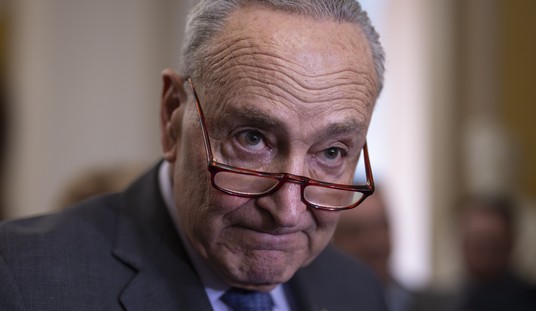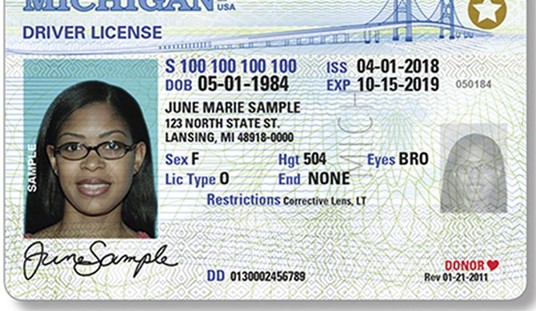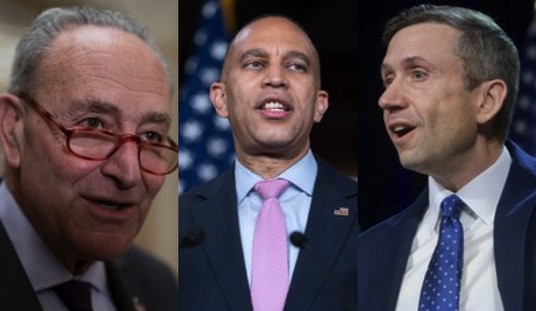Stanford law professor and former federal appeals court judge Michael McConnell has a piece at Hoover.org that criticizes the Ninth Circuit decision on Trump’s executive order. The piece is titled A Flawed Restraining of a Flawed Order.
McConnell’s piece is notable not only for what it says, but also what it doesn’t say . . . and for what it concedes.
Before getting to the legal analysis, McConnell makes this observation:
Much of the interest, and hysteria, was predicated on a demonstrably false characterization of the Order as a “Muslim ban.” President Trump has only himself to blame for that misunderstanding, since he called for such a ban on the campaign trail and his Administration offered almost no explanation of the narrow scope or the justification for the Order. It was almost as if the Administration hoped to set off a hysterical and uninformed debate, or to throw the immigrant and refugee community into a state of fear and uncertainty. I cannot believe that to be true, but sometimes carelessness and haste have the same effect that malice would.
. . . .
The incompetent and overhasty implementation of the executive order, leading to chaos and distress, gave the Order an aura of illegitimacy. The President’s inappropriate personal criticism of the judges and the judicial process did not help his case.
It is not the goal of this post to detail McConnell’s legal arguments in their entirety, but I’ll give a quick synopsis, together with my own observations when appropriate.
McConnell argues that the court’s finding of standing is unprecedented, declaring: “It is like holding that a grocery store could challenge taxes imposed on its customers because they will have less money to spend at the store.” This dismissive pronouncement, in my opinion, fails to adequately address the cases cited by the Ninth Circuit, such as Craig v. Boren, which is not far removed from the grocery story hypothetical that McConnell flatly deems absurd. As the Ninth Circuit stated:
Vendors, for example, “have been uniformly permitted to resist efforts at restricting their operations by acting as advocates of the rights of third parties who seek access to their market or function.” Craig v. Boren, 429 U.S. 190, 195 (1976).
In Craig v. Boren, a vendor of beer was allowed to challenge an Oklahoma statute that prevented her from selling 3.2% beer to young males while allowing sales of that beer to young females. The vendor had standing, said the Supreme Court, explaining:
The legal duties created by the statutory sections under challenge are addressed directly to vendors such as appellant. She is obliged either to heed the statutory discrimination, thereby incurring a direct economic injury through the constriction of her buyers’ market, or to disobey the statutory command and suffer, in the words of Oklahoma’s Assistant Attorney General, “sanctions and perhaps loss of license.” Tr. of Oral Arg. 41. This Court repeatedly has recognized that such injuries establish the threshold requirements of a “case or controversy” mandated by Art. III.
This sounds a lot like McConnell’s grocery store example, and I don’t think McConnell’s analysis sufficiently addresses cases like this.
McConnell tries to distinguish cases cited by the Ninth Circuit “where the plaintiff has a special relation with the alien” by declaiming: “The State has no special relationship with the affected aliens.” That too is not obvious to me. The opinion cites the harms to state universities unable to accommodate visiting scholars, interview prospective employees, or bring sponsored interns to their campuses. It is not obvious to me that these relationships are less close than the relationships of beer vendors to their customers.
A better standing argument, in my opinion, was made by Dan McLaughlin, who believes that the ruling on standing regarding “current or planned faculty or students from the seven countries” was a “reasonable enough ruling, as far as it goes” but such a ruling
would normally not give [the states] standing to challenge other aspects of the executive order in which they have no concrete interest, such as the 120-day suspension of the refugee program (Section 5(a)), the indefinite ban on Syrian refugees (Section 5(c)), or the provisions of the order requiring future consideration of religious-minority status for refugees claiming religious persecution (Sections 5(b) and 5(e)).
This complaint relates to McConnell’s next complaint, which relates to the merits. McConnell says that the Due Process claims brought by the states do not apply to all classes of aliens. Before I address that argument, which may well have some merit, let me first note an important concession by McConnell.
Importantly, McConnell concedes — by noting that the Government had conceded in court — that “the executive order never properly applied to green card holders” and also “could not apply to previously admitted aliens temporarily abroad.” It is a somewhat overlooked aspect of this litigation and this decision that this assertion is almost entirely noncontroversial, to those who are paying attention to the details. Both supporters and critics of the order admit, for the most part, that you can’t apply it to green card holders. Most also admit that previously admitted aliens who just happen to be out of the country for a short time could not legally be prevented from returning.
The real issue appears to be: what about other aliens, like those who have never been in the country? Surely it’s far from obvious that they have a due process right to entry. This is the weakest part of the Ninth Circuit decision. As McConnell says:
The court then said: “More generally, even if the TRO might be overbroad in some respects, it is not our role to try, in effect, to rewrite the Executive Order.” That is precisely backwards. If the State of Washington’s case is a facial challenge, the existence of a nontrivial number of constitutional applications is reason to reject the challenge. If the State of Washington’s case is an as-applied challenge, relief must be confined to those applications that are unconstitutional.
The Ninth Circuit tries to get out of this bind by arguing that the Government’s proposed remedy still might leave some Due Process issues unresolved. This strikes me as a bit of a copout — a by-product of the rushed nature of the litigation. Rather than taking the time to decide which parts of the order are truly probably unconstitutional, the Court in essence throws up its hands and blames the Trump administration for forcing this issue on them so suddenly. If the mystery judge who has called for en banc review of the decision has a problem with anything, it’s probably this aspect.
I want to conclude the post by knocking down a couple of pieces of Conventional Wisdom I see circulating among people on Twitter, including some smart people. One such article of faith is that the Court screwed the pooch by failing to cite 8 U.S.C. 1182(f). To people not analyzing the case too closely, the entire case begins and ends with that statute. Indeed, Trump had a political (if not a legal) masterstroke in reading the provision out loud to a group of sheriffs. People on Twitter are circulating a viral image of the text of 1182(f) with the important parts highlighted, and several people have tweeted that image to me triumphantly, as if to say: “AHA! You never heard of THAT now, didja?!”
Well, yeah. That statute has been central to several posts I have done about this issue. Here’s the thing, though. It’s a statute. If the Ninth Circuit thinks the executive order has due process problems — and remember, it plainly does as to green card holders and other visa holders — those are problems rooted in the Constitution. And the Constitution trumps any Congressional statute. The Ninth Circuit panel may not be right about the ways that the order allegedly restricts the status of aliens who have obtained no visa and hold no green card — but to the extent that they are right about any of the constitutional claims (and as I noted above, they are right about some of them, as even the administration and McConnell concede), those constitutional concerns supersede any statute passed by Congress, no matter how bright the highlighting on its text.
The second piece of Conventional Wisdom out there is that the Ninth Circuit based its decision on Trump’s campaign rhetoric, to find that this was a “Muslim ban.” I had no fewer than three Twitter users throw that assertion at me in the course of about ten minutes this evening. The problem is, that is flatly untrue. As I observed before, two of the judges seemed convinced by this argument at oral argument, but in order to get the third judge on board with a unanimous per curiam opinion, the court explicitly reserved its ruling on this issue. This was not the basis for the ruling, no matter how many times Conventional Wisdom says it is.
Again: as I have said before, while parts of this decision might be wrong (I am no immigration law expert, remember), it’s clearly not as outrageous as it is being portrayed by many. The best course of action is not to take it to the Supreme Court (an option that the administration has wavered on today) but to have Trump write a new order that doesn’t apply to green card holders or other visa holders, and that does not violate rules on immigration set by Congress — and then to work with Congress on any aspects that require Congressional involvement.
In other words, follow the law and act like an adult. Horrors! What will these damned judges ask him to do next?













Join the conversation as a VIP Member